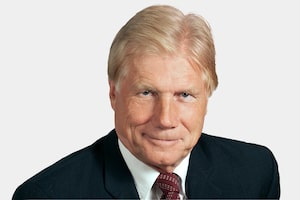What's our Governor-General got in his quiver?
Is David Johnston going to be a ceremonial G-G, a tea-and-crumpets do-gooder, all sugar and smiles? Or is he going to make a mark in the post like his two predecessors? Will he follow up on the spirited activism of Adrienne Clarkson? Will he do anything comparable to eating the raw heart from a slaughtered seal – Michaëlle Jean's deed in support of the Inuit hunt?
We received some clues from a recent speech Mr. Johnston gave at the University of Ottawa. There, he underscored the powers of his position and he raised subjects you might call timely – the importance of responsible democratic government and the national institutions that preserve it.
Mr. Johnston didn't issue any direct hits. He didn't say these institutions were under siege. If at all tempted, the Prime Minister's Office didn't see fit to send in the muzzlers. But given all the democracy-related controversies of late, the G-G's reminders were to be duly noted.
The event was the launch of The Governors General of Canada, a collection of profiles published by New Federation House. After informing one and all that "my duty as Governor-General is … to uphold Canada's system of responsible government," Mr. Johnston provided a definition of that phrase. He drew attention to the fact that the executive is answerable to the assembly and that the assembly is elected by the people.
It was interesting that he felt compelled to give the civics lesson at this time. He repeatedly stressed the great importance of the Crown in the functioning of our democracy, as if to say: "Don't call me a figurehead." And on national institutions, he was emphatic: "Without healthy and robust national institutions, we can well ask ourselves, 'What is Canada?' Our institutions reflect our democratic values, values which unite us as Canadians. They are therefore precious beyond measure."
Although his words may not have been directed at Prime Minister Stephen Harper's government, Mr. Johnston was no doubt aware of all its entanglements. And he was no doubt aware of Green Party Leader Elizabeth May's letter to the Queen asking that a royal commission be established to investigate affronts to Canada's democratic system, such as the robocalls controversy. In response, a spokeswoman advised that Her Majesty would not intervene but that Ms. May's appeal should be addressed to the Governor-General.
Wherever he has been, Mr. Johnston has been known for ethics and fair-mindedness. He is well aware of our democracy's history. We hardly need wonder how he looks on such matters as refusing to provide Parliament with basic information, questionable measures to cut short debates, omnibus bills of unprecedented scope and the muzzling of MPs and scientists.
Just last week, the Speaker of the Commons ruled against the PMO for limiting MPs' freedom to issue statements in the House. The Conservatives were also found to be using taxpayer dollars to attack the character of new Liberal Leader Justin Trudeau.
Since Mr. Johnston was appointed by this Prime Minister, he needed to proceed prudently, cautious in his choice of words. He did in this speech, but it still served a good purpose.
In commenting on the new book, he emphasized how governors-general have made vital contributions to Canada's progress. "In fact, I can think of few national institutions where individuals have exerted such a profound influence."
If he takes on the issue of our deteriorating democracy, his own influence is likely to be profound as well.
 Lawrence Martin
Lawrence Martin